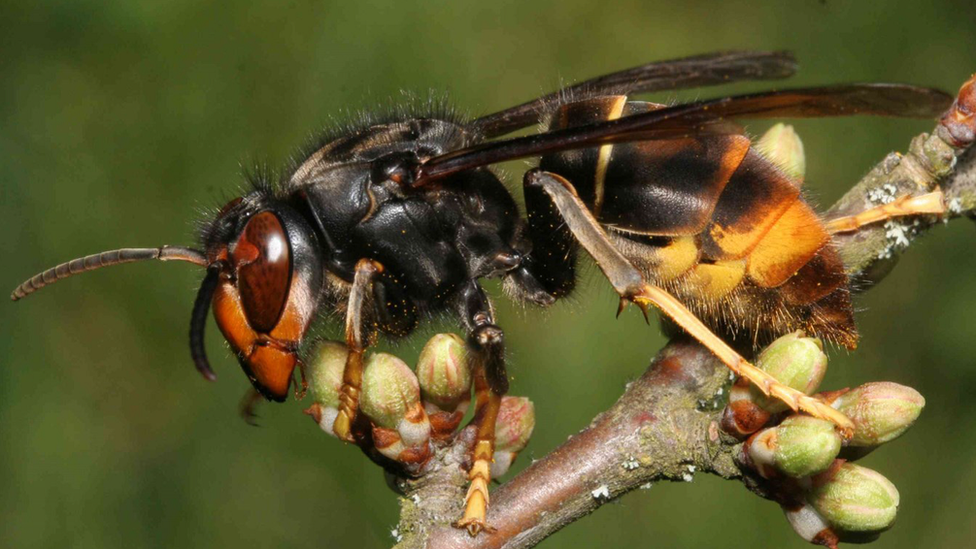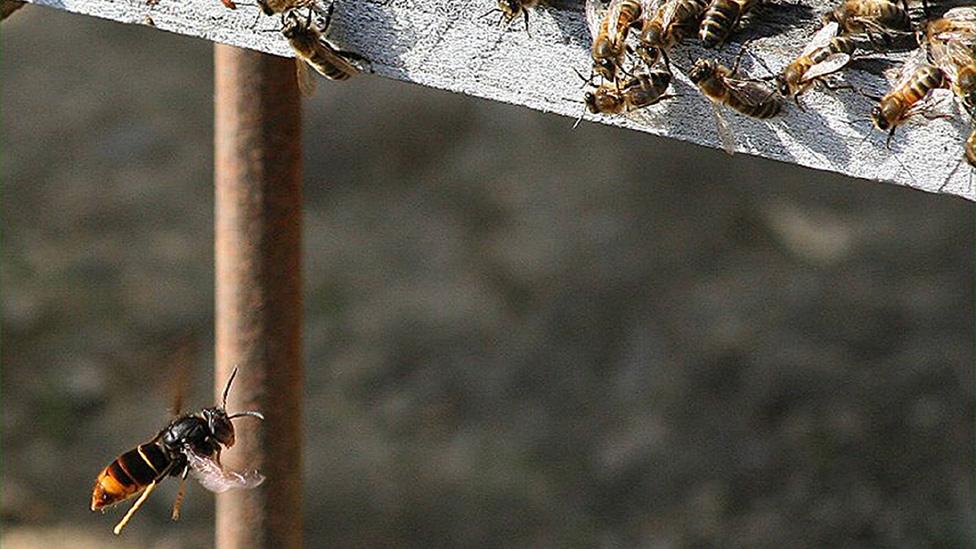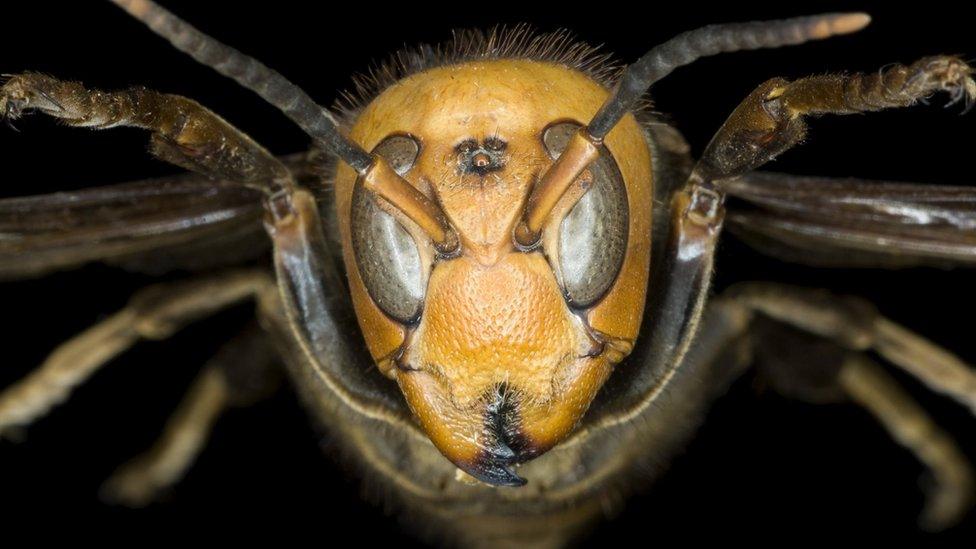Asian hornets: Hampshire records UK's first find of 2019
- Published

Asian hornets have spread rapidly across continental Europe
A bee-killing Asian hornet has been found in the UK for the first time this year, the government has said.
The insect, thought to be a queen, was captured in New Milton, Hampshire, after a report from a member of the public.
It is the first confirmed UK find since a hornet was sighted in Dungeness, Kent, in October.
Eighty Asian hornets were spotted last month on Jersey, prompting fears of a UK invasion.
The invasive predators are able to eat up to 50 honey bees in a day.

The hornet hovers near hives and attacks and eats the bees
The Centre for Ecology and Hydrology (CEH) said the queen was likely to have been looking for a suitable place to create a nest.
Prof Helen Roy from the CEH said: "She might have arrived in luggage from the continent or overwintered in the UK.
"Every record is significant because we have an opportunity to respond and reduce the threat. So far all confirmed sightings have been managed successfully.
"It is a fantastic story - the way the public has been involved is inspiring."
In September an Asian hornets' nest was destroyed in Brockenhurst, five miles (9km) from New Milton.
Scientists located the nest by attaching an electronic tag to a captured hornet.
Defra said the risk of Asian hornets being found in the UK is higher during summer months and urged people to check their luggage after returning home from travelling abroad.
Chief plant health officer, Nicola Spence: "By ensuring we are alerted to possible sightings as early as possible, we can take swift and effective action to stamp out the threat posed by Asian hornets."

Asian hornet (Vespa velutina)
Asian hornets: What's all the buzz about vespa velutina?
Asian hornets were first recorded in the UK in 2016
Queens are up to 3cm (1.2in) in length, while workers are up to 2.5cm (1in)
The hornets have a dark brown or black velvety body, bordered with a fine yellow band
They nest openly in trees and hedges, unlike European hornets which often nest in cavities
They hover near hives to snatch worker bees, mascerate them into a pellet and take them back to their colony
Their sting is no more potent than the European hornet's
Source: National Bee Unit / University of Exeter/ Centre for Ecology and Hydrology

- Published18 June 2019

- Published1 March 2019

- Published11 October 2018

- Published5 October 2018

- Published12 September 2018
